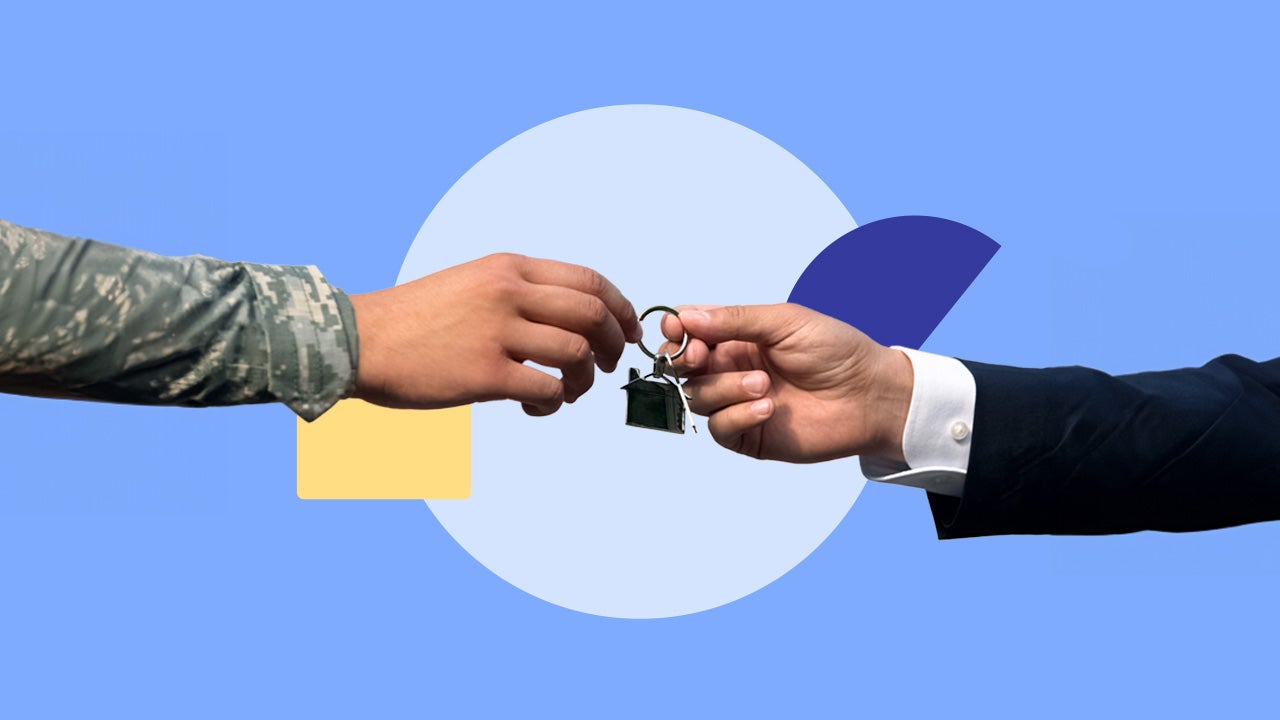VA home loan requirements for 2025




Key takeaways
- To qualify for a VA loan, borrowers must be an eligible veteran, service member or a surviving spouse.
- Borrowers must obtain a Certificate of Eligibility (COE), live in the purchased home and meet lender underwriting standards.
- The VA mandates property appraisals, while lenders may also require inspections.
The U.S. Department of Veterans Affairs (VA) gives qualifying veterans, service members and surviving spouses access to zero-down mortgages. The terms are generous, but there are requirements, including those set by the VA and those set by individual lenders.
Here’s what you need to qualify for a VA home loan.
VA home loan eligibility requirements
These are the main requirements for getting a VA-backed purchase loan:
- You must be entitled to and obtain a Certificate of Eligibility (COE) based on your military service record, including:
- Active-duty service members who have served at least 90 continuous days
- Veterans who meet minimum service requirements, based on their service era and reasons for discharge. For example, if you served between Aug. 2, 1990 and the present, you must have served at least 24 continuous months or the entire time you were required to serve active duty, at least 90 days. Other time limits apply if you were discharged.
- Some members of the Reserve and National Guard. At least 90 days of non-training active-duty service or 6 creditable years of membership are common requirements.
- Eligible surviving spouses. You may be eligible if, for example, your spouse is missing in action, a prisoner of war or died while in service or from a disability related to their service, and you didn’t remarry.
- You must live in the home you’re buying.
- You must meet the lender’s underwriting requirements, including those for credit and income.
As of 2020, VA loans no longer have loan limits for borrowers with full entitlement. You have full entitlement if:
- This is your first VA home loan.
- You took out a previous VA home loan, sold the property, and repaid the loan.
- You took out a previous VA home loan, but you repaid it after a foreclosure or a short sale.
While you might still be subject to an appraisal or home inspection, these requirements ensure that the home is properly valued, not that it’s worth a set dollar amount.
Most borrowers must also pay a VA loan funding fee, which ranges from 0.5 percent to 3.3 percent of the loan amount based on your loan type, your down payment and whether it’s your first VA loan. Veterans with service-related disabilities and some surviving spouses don’t have to pay a funding fee. Purple Heart recipients on active duty are also exempt from the fee.
VA home loan qualifications
The VA doesn’t heavily regulate the loans it backs, but the lenders who issue VA loans apply their own underwriting criteria. As a result, factors like an applicant’s credit score, income and outstanding debt all generally come into play.
Minimum credit score for VA home loans
The VA doesn’t impose a minimum credit score for VA home loans. Instead, it requires lenders to look at the borrower’s overall risk profile. However, lenders can and do set their own underwriting requirements, and many require VA borrowers to have a credit score of 620 or higher.
Debt-to-income (DTI) ratio for VA loans
Generally speaking, the VA requires borrowers to have a debt-to-income (DTI) ratio of 41 percent or less. That means the sum of all your monthly debt payments should be less than 41 percent of your monthly income. There may be limited exceptions made for those with more debt, for example, if you have a large amount of tax-free income.
VA loan down payment requirements
If you want to qualify for a VA loan without making a down payment, you’ll need full entitlement.
You may take out a VA loan without full entitlement, but you’ll likely have to make a down payment. You may also have to make a down payment if you’re paying more for the house than the appraised value.
VA loan property requirements
The VA doesn’t require a home inspection — but you should get one to ensure you know the condition of the property you’re buying. Your lender might also require one.
The VA does mandate an appraisal of the property — and most lenders do, too. That appraisal lets the VA know that the sales price for your soon-to-be home doesn’t exceed its value, often by comparing it to similar, recently sold properties nearby. An appraisal also checks that the house meets the VA’s minimum property requirements. For example, the VA requires that properties have:
- Access from a street with an all-weather surface
- Permanently installed heating
- A continuous supply of clean water
- A roof that keeps moisture out of the house
In some cases, you must also get a home appraisal if you’re doing a VA refinance.
Next steps in applying for a VA loan
Once you’ve figured out if you qualify for a VA loan, it’s time to start looking for a lender. It’s a good idea to compare multiple lenders — at least three — to make sure you get the best VA loan rate and terms. Once you find the right lender, formally apply for a VA loan.
FAQ
Why we ask for feedback Your feedback helps us improve our content and services. It takes less than a minute to complete.
Your responses are anonymous and will only be used for improving our website.




